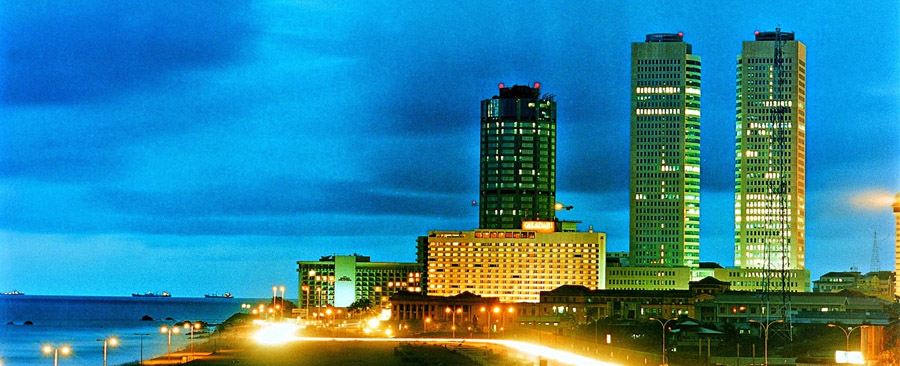
Colombo is a city that makes you feel home no sooner you reach it.
Known to Roman, Arab and Chinese traders for 2000 years as well as Indian traders from Calicut and Gujarat also made it their rendezvous point with the Arabs from the Gulf of Oman.
The natural point of convergence for traders from the remotest recesses of the past today it is a vibrant city frequented by visitors both on holiday in Sri Lanka or a Stopover in Sri Lanka on their way to the heart of Asia.
Colombo withstood the turbulence of European conquest with its ancient charm and elegance. In the process it became the seventh largest sheltered port in the world in 1907. Its demography mirrors its captivating history with a mix of Buddhist, Hindu, Muslim and Christian ethics.
Many great landmarks within its Municipality display this colourful history. The picturesque Gangaramaya Temple with its Sacred Enclosure of Higher Ordination built on the Dutch built Beira Lake, the Sri Kailasnathasr Hindu temple that overlooks the Colombo Fort Railway yard, the Dewatagaha Mosque where a 19th century Sufi saint is entombed, St. Lucias Cathedral, Wolvendaal Dutch Reformed Church and the Anglican St. Michaels Church built of stone, mortar and wood narrate the story of a city that still stands on the crossroads of evolving history.
The Port of Colombo is one of the world’s largest artificial harbours, that is still under expansion. It is a major Indian Ocean seaport. As the main commercial hub of Sri Lanka, Colombo is the preferred location for the operations of both foreign and local banks, insurance companies and global investment and financial service providers.
The part of the city known as the Fort was first built by the Portuguese as their protected enclave. It was modified by the Dutch. The British had little use for its fortifications after its total conquest of the island. It is now an important commercial center with many offices, five-star hotels, attractive shops and banks. The 19th century Clock Tower was once a lighthouse. Other historic landmarks are the President’s House and Gardens which was the residence of the British Governors from the time of the Dutch occupation.
The Dutch left some remarkable imprints behind. Most of them can be seen in the Dutch Museum located in the fort in a well preserved building of the Dutch period. The Mount Lavinia Beach is one of the sought after resort areas only 2 kms away from Colombo. The hotel that bears the name was once the residence of Sir Thomas Maitland, the British Governor who built it as his weekend retreat in 1805. The oldest hotel east of Suez is at one end of the Galle Face green, a wide promenade popular with all residents and visitors.
Colombo has some of the oldest residential properties with ornate arcades, wide verandahs and painted ceilings of colonial buccaneers, bankers and barons who made their fortunes in trade shipping and plantations. They are of such antiquity that they need to be protected however prohibitively expensive to be lived in. Today they form one of the most extravagantly comfortable strings of Sri Lanka Boutique hotels in the whole region. The dream home away from home for a holiday in Sri Lanka which may well turn in to a prolonged vacation in Sri Lanka.